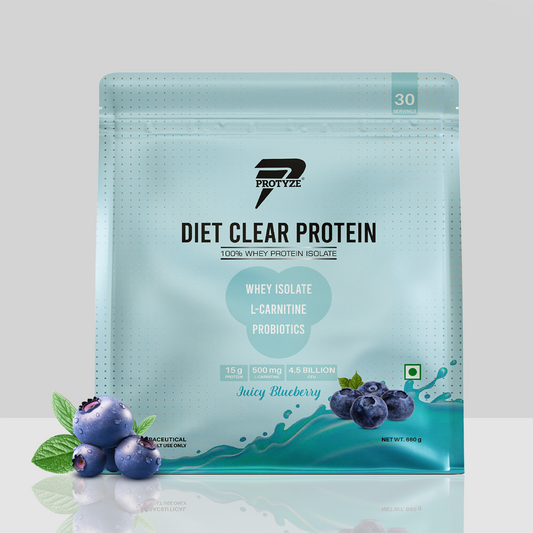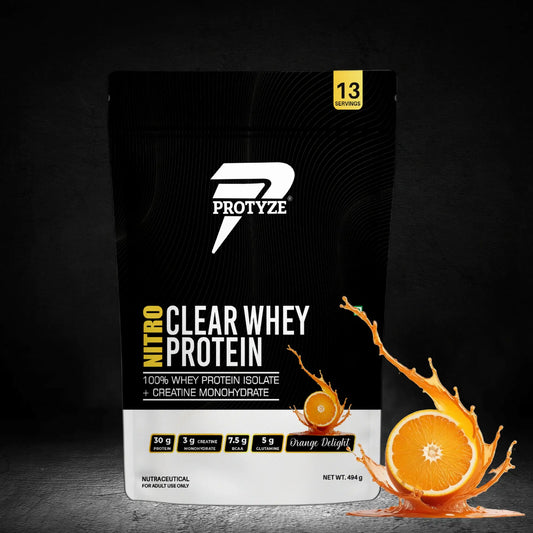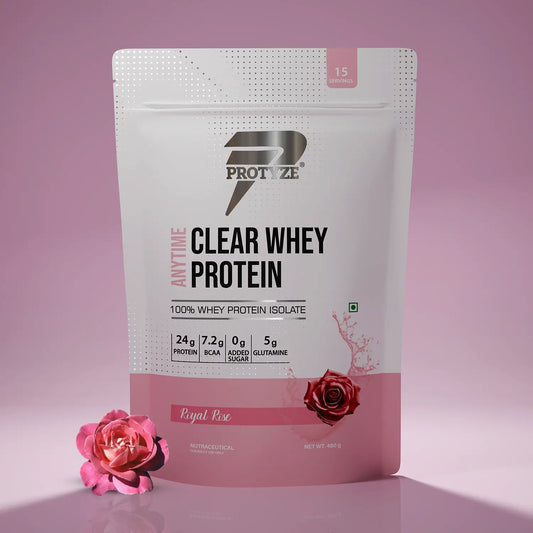Feeling tired all the time can be frustrating, especially when you’re trying to stay active, focused, and productive. While lack of sleep, stress, or a busy lifestyle might be the obvious culprits, there’s another possibility you might not have considered: nutrient deficiencies. Your body relies on a range of vitamins, minerals, and macronutrients to function optimally, and even a small shortfall can leave you feeling drained.
This blog explores how nutrient deficiencies can disguise themselves as tiredness, the key nutrients you might be lacking, their food sources, supplementation options, and lifestyle strategies to boost your energy. We’ll also highlight Protyze Nitro Clear Whey Protein, a high-protein, creatine-enhanced supplement, to help you meet your nutritional needs. Let’s uncover whether your tiredness is a sign of something deeper and how to address it.
How Nutrient Deficiencies Cause Tiredness
Your body is like a complex machine that needs the right fuel to run smoothly. Nutrients play a critical role in energy production, oxygen transport, muscle function, and brain health—all of which directly impact how energized you feel. When you’re deficient in certain nutrients, these processes can slow down, leading to fatigue. Here’s how:
- Energy Production: Nutrients like B vitamins, iron, and magnesium are essential for converting food into energy at the cellular level. A deficiency can impair this process, leaving you feeling sluggish.
- Oxygen Delivery: Iron and vitamin B12 are crucial for producing red blood cells, which carry oxygen to your muscles and brain. Low levels can reduce oxygen delivery, causing tiredness and weakness.
- Muscle Function: Magnesium supports energy production in muscle cells. A deficiency can lead to muscle fatigue, making even simple tasks feel exhausting.
- Hormone Balance: Nutrients like vitamin D and zinc influence hormones that regulate energy, mood, and sleep. Low levels can disrupt these systems, leading to persistent fatigue.
- Gut Health and Nutrient Absorption: A healthy gut is essential for absorbing nutrients from food. Poor gut health, often linked to deficiencies in probiotics or fiber, can reduce nutrient uptake, contributing to tiredness.
If you’re feeling unusually tired despite getting enough rest, a nutrient deficiency might be the hidden cause. Identifying and addressing these deficiencies can help you regain your energy and vitality.
Signs Your Tiredness Might Be a Nutrient Deficiency
Tiredness caused by nutrient deficiencies often comes with other symptoms that can help you pinpoint the issue. Here are some signs to watch for:
- Fatigue with Pale Skin or Dizziness: These can indicate an iron or vitamin B12 deficiency, as both are needed for red blood cell production and oxygen transport.
- Muscle Weakness or Cramps: Feeling weak or experiencing frequent muscle cramps might point to low magnesium levels, which are essential for muscle function.
- Brain Fog or Poor Focus: Difficulty concentrating, memory issues, or low mood can signal a deficiency in B vitamins, vitamin D, or omega-3 fatty acids, which support brain health.
- Frequent Illness or Slow Recovery: If you’re getting sick often or recovering slowly from workouts, you might be low in zinc or vitamin D, both of which support immune function and recovery.
- Digestive Issues with Fatigue: Bloating, irregular bowel movements, or poor digestion alongside tiredness could indicate poor gut health, which affects nutrient absorption and energy levels.
- Hair Loss or Brittle Nails: These can be signs of deficiencies in protein, iron, or zinc, which are needed for tissue repair and overall vitality.
If you’re experiencing a combination of these symptoms, it’s worth evaluating your diet and considering whether a nutrient deficiency might be at play.
Key Nutrients That Combat Tiredness
Here are the top nutrients that might be missing from your diet if you’re feeling tired, along with their roles, food sources, and supplementation options:
1. Iron
Iron is essential for producing hemoglobin, a protein in red blood cells that carries oxygen throughout your body. Low iron levels can lead to anemia, a common cause of fatigue.
- Role in Energy: Ensures oxygen reaches your muscles and brain, preventing tiredness and weakness.
- Signs of Deficiency: Pale skin, dizziness, shortness of breath, and extreme fatigue.
- Food Sources: Red meat (3mg/100g), spinach (2.7mg/100g), lentils (3.3mg/100g), and fortified cereals (varies by brand).
- Supplementation: If deficient, 8-18mg daily (depending on age and gender) as ferrous sulfate or gluconate, taken with vitamin C to enhance absorption. Consult a doctor to confirm deficiency, as excess iron can be harmful.
2. Vitamin B12
Vitamin B12 works with iron to produce red blood cells and supports energy metabolism by helping your body use carbs, fats, and proteins for fuel.
- Role in Energy: Supports oxygen delivery and energy production at the cellular level.
- Signs of Deficiency: Fatigue, numbness, tingling, and memory issues, especially in vegetarians who don’t get enough B12 from diet.
- Food Sources: Eggs (0.6mcg/egg), salmon (4.8mcg/100g), fortified dairy (milk: 1.2mcg/100ml), and nutritional yeast (varies).
- Supplementation: 2.4mcg daily for adults, or higher doses (500-1000mcg) if deficient, often as a sublingual tablet or injection for better absorption.
3. Magnesium
Magnesium is involved in over 300 enzymatic reactions, including energy production, muscle relaxation, and nerve function.
- Role in Energy: Helps convert food into ATP (energy) and supports muscle recovery, reducing physical fatigue.
- Signs of Deficiency: Muscle cramps, weakness, irritability, and low energy, often paired with poor sleep.
- Food Sources: Spinach (79mg/100g), almonds (80mg/28g), dark chocolate (64mg/28g), and whole grains (oats: 29mg/100g).
- Supplementation: 200-400mg daily, ideally as magnesium citrate or glycinate for better absorption, taken with a meal to avoid stomach upset.
4. Vitamin D
Vitamin D supports energy by regulating hormones, reducing inflammation, and improving muscle function. Low levels are common, especially in areas with limited sunlight.
- Role in Energy: Enhances muscle efficiency, supports immune health, and influences mood-regulating hormones, reducing fatigue.
- Signs of Deficiency: Tiredness, low mood, muscle pain, and frequent illnesses.
- Food Sources: Fatty fish (salmon: 11mcg/100g), fortified dairy (milk: 1.2mcg/100ml), egg yolks (1mcg/yolk), and sunlight exposure (15-30 min daily).
- Supplementation: 10-20mcg (400-800 IU) daily, or higher if deficient (consult a doctor for blood testing). Vitamin D3 is the most effective form.
5. Protein
Protein isn’t just for muscle growth—it’s essential for tissue repair, enzyme production, and maintaining energy levels by stabilizing blood sugar.
- Role in Energy: Provides amino acids for tissue repair, supports steady energy by preventing blood sugar spikes, and aids in overall vitality.
- Signs of Deficiency: Fatigue, hair loss, brittle nails, and slow recovery from physical activity.
- Food Sources: Chicken (27g/100g), eggs (6g/egg), Greek yogurt (10g/100g), and lentils (9g/100g).
- Supplementation: A protein supplement can help meet your needs, especially if you’re active or struggle to get enough from food. Protyze Nitro Clear Whey Protein, with 30g of protein and 3g of creatine per serving, is a high-protein, low-calorie option that supports energy and muscle recovery, available in flavors like Green Apple.
The Role of Gut Health in Nutrient Absorption and Energy
Even if you’re eating a nutrient-rich diet, poor gut health can prevent your body from absorbing those nutrients effectively, leading to tiredness. Your gut microbiome—trillions of bacteria living in your digestive tract—plays a key role in breaking down food, absorbing nutrients, and producing energy-boosting compounds like short-chain fatty acids (SCFAs).
- How Poor Gut Health Causes Fatigue: An imbalanced microbiome can reduce nutrient absorption, increase inflammation, and disrupt energy production, leaving you feeling drained.
- Signs of Gut Issues: Bloating, irregular bowel movements, and fatigue, especially after meals, can indicate that your gut isn’t absorbing nutrients well.
-
How to Improve Gut Health:
- Eat fiber-rich foods like fruits, vegetables, and whole grains to feed beneficial bacteria.
- Include probiotics from yogurt, kefir, or supplements to restore gut balance.
- Consider a supplement like Protyze Nitro Clear Whey Protein, which is 99% lactose-free, creatine-enhanced, and available in flavors like Mango Delight, to support both protein intake and energy levels.
A healthy gut ensures your body can use the nutrients you consume, helping you combat tiredness and feel more energized.
Conclusion
Tiredness can often be a sign of nutrient deficiencies in disguise, affecting your energy, mood, and overall vitality. Key nutrients like iron, vitamin B12, magnesium, vitamin D, and protein are essential for combating fatigue, and deficiencies in these can leave you feeling drained. By focusing on a nutrient-rich diet, supporting your gut health, and adopting energy-boosting lifestyle habits, you can address these deficiencies and feel more vibrant.
Protyze Nitro Clear Whey Protein, with its 30g protein, creatine-enhanced, 99% lactose-free formula, is a great way to support your protein needs and energy levels in flavors like Green Apple and Sour Orange. Take a closer look at your diet and lifestyle, and consider whether a nutrient deficiency might be the root of your tiredness. With the right approach, you can reclaim your energy and thrive.





